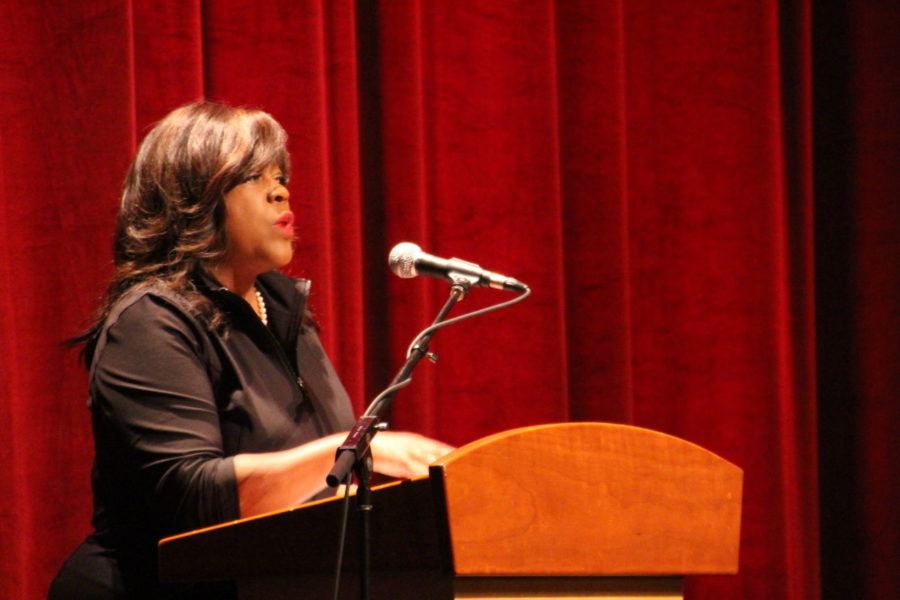Feminism shines bright in ‘Girlhood’
April 20, 2015
Céline Sciamma’s “Girlhood” tackles stereotypes from the first scene.
The 2014 French film was screened Friday at the 17th annual Ebertfest. The film is the coming-of-age tale of 16-year-old Marieme, played by Karidja Touré, who comes from a low-income home with two younger sisters, a working mother and an abusive brother. It was an Ebertfest first because the production company watermarked the copy since it needed subtitles.
Set in the suburbs of Paris, the opening scene portrays an American football game. The players’ faces are initially blurred by the action. But once the action begins, viewers see that they’re clearly girls.
This theme is repeated throughout the film, which makes sense, considering the direct translation of the French title is “Band of Girls.”
While the film expresses feminist views, it stresses other issues as well, including racism, economic class and educational failure. Sciamma’s direction focuses on distinct chapters in Marieme’s life, separated by extended cuts to black.
Get The Daily Illini in your inbox!
Although the film deals with harsh realities, the clarity and color of each shot is anything but. Vivid colors, particularly shades of blue, and high-definition close-ups enhance the characters’ emotions.
The plot is clear “even if you don’t understand French. There’s so much going on there visually,” said Eric Pierson, associate professor at the University of San Diego and Ebertfest panelist during the movie’s Q and A session.
Early in the film, Marieme learns she will be forced to go to vocational school due to her grades. Desperately wanting to avoid the same path that her mother took, she quits school and is welcomed into a tough-love girl gang.
Stereotypical expectation would indicate this to be her downfall.
But Lady (Assa Sylla), the gang’s leader, takes Marieme under her wing with the help of other members Fily (Mariétou Touré) and Adiatou (Lindsay Karamoh). Marieme transforms herself into Vic, meaning “victory.”
As Vic, she switches her youthful braids for long, smooth hair and begins incorporating her signature, vivid blue into her outfits. She also begins to party and shoplift.
“People make the best opportunity out of the choices that they have,” Pierson said.
A turning point in the film comes when the girls get a hotel room, pour liquor into a plastic bottle of Coke and dance in stolen dresses to Rihanna’s “Diamonds.” They fall asleep, tangled together on the bed.
It’s a typical teenage “girls’ night.” They dress up for no one but themselves and trade compliments as they get ready. The fierce expressions they wear on the street slip away, revealing teenage youth and innocence as they laugh together.
Within the girl gangs, the ladies spit insults at each other from across the tracks, fight rival gangs and flash-prized pocketknives but are constantly reminded of a greater threat.
They live in a society where men constantly circle like vultures, waiting for one of the girls to lose hope in the rough concrete desert.
When Vic cautiously enters a relationship with her brother’s friend Ismaël (Idrissa Diabaté), her brother shames her for exploring her budding sexuality, even though the other men receive no punishment from the gendered double standard.
In “Girlhood,” Vic’s fight to break out of the expectations prescribed to her based on her race, class and gender come together in an empowering, realistic story which is best captured by the mantra Lady makes Vic repeat to herself: “I do what I want.”
Lillian is a freshman in Media.







